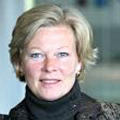Britt-Marie Drottz-Sjöberg
Speaker


Britt-Marie Drottz-Sjöberg

ZAK asked Prof. Dr Britt-Marie Drottz Sjöberg to answer the following questions:
1. Has our need for security grown or merely our perception of insecurity?
Both aspects seem to be currently increasing and these factors are driven in a dialectical relationship to each other. Perceptions are influenced by, for example, information availability and others’ reactions, and psychological needs as well as security needs decided upon in more formalised manners are intertwined and alternatively producing cause and effect. It may be that current generations are more enlightened with respect to the risks attached to previously unsurpassed human achievements and life conditions, thus highlighting a situation similar to the sword of Damocles.
2. To what extent are interferences between the different risks on the increase? Is a domino effect recognisable?
The societal development involves increasingly larger degrees of vital interconnections driving or related to basic societal functioning and human well-being. Those interconnections could be described from various technological perspectives, from the perspective of social and cultural interaction, etc., as well as on the bases of more comprehensive attempts describing interactions between humans or mankind and available technological components and systems. In addition, our time has developed an increased awareness of ecological systems, enlarging the evaluative perspective to include environmental quality aspects to the already extensive interface of human-technological interactions. The ‘domino effect’ explanation or mindset is a bit outdated in that is looks for, and tries to predict, linear cause and effect relationships. Complex sub-systems, and the complexity of interconnections between larger systems, do always contain vulnerabilities. These vulnerabilities are extremely difficult to localise and predict. The knowledge of their existence may create feelings of loss of control, anxiety and helplessness. Main challenges of our time certainly involve the improvement of the ability to predict systems’ vulnerabilities and to find technological as well as political means to manage the risks.
3. In the face of the present crisis situation should more decision-making authority be shifted to the European institutions/organs?
In my opinion, the European Union offers an extraordinary opportunity to create collaboration and progress within most societal arenas. European institutions and organs already play important roles in business and politics, and not the least in attempts to harmonize standards and requirements in the environmental field. The Union is rather young, however, and many citizens’ identities are still very attached to local areas and specific life-styles. Major challenges seem to involve the strengthening of common interests and developing European flagships of institutional overview and excellence at the same time as important aspects, such as promotion of cultural diversity and local participation and authority of relevant political tasks, are maintained and developed. It is my hope and belief that increased cooperation will be achieved through future strategies involving new generations, voluntariness and a profound discussion on risks and benefits.